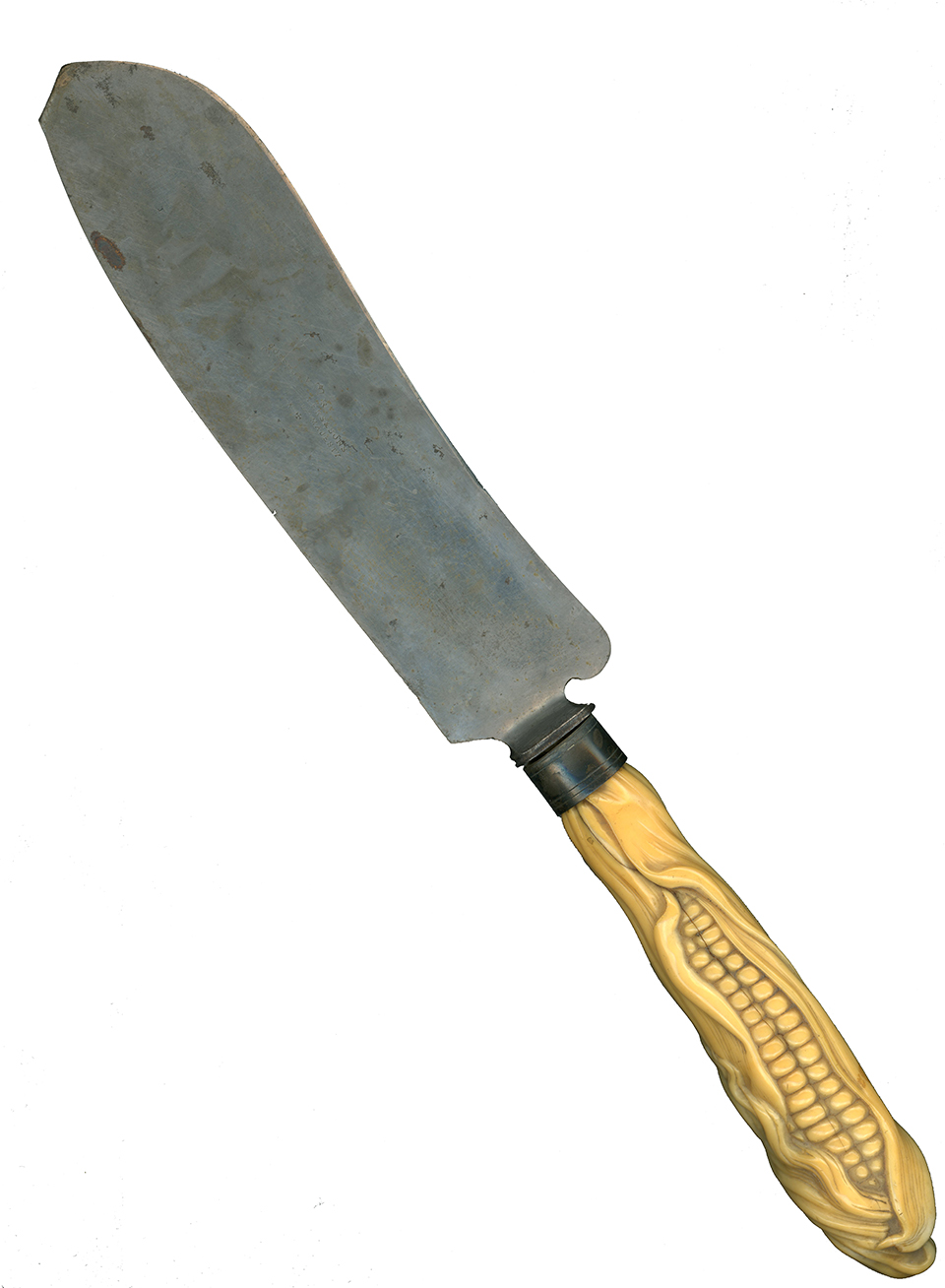 Ever heard the phrase “Knee-high by the Fourth of July”? The phrase was once used in the U.S. to refer to how far along a farmer’s corn crop should be by that date. As we move into July, we feature an item that incorporates a corn-themed design element.
Ever heard the phrase “Knee-high by the Fourth of July”? The phrase was once used in the U.S. to refer to how far along a farmer’s corn crop should be by that date. As we move into July, we feature an item that incorporates a corn-themed design element.Shown above is a bread knife measuring almost 13 ½ inches long, with a smooth steel blade that is damaged at the tip (bread knives with serrated blades did not come into widespread use until the late 19th century), and an imitation ivory handle molded in the form of an ear of corn still in its husk. The corn design may symbolize growth, grain in general, and perhaps bread, a food considered a staple of life. Engraved on one side of the blade is “V [image of a crown] R / JOSEPH RODGERS & SONS / CUTLERS TO HER MAJESTY/ [image of a star and Maltese cross]”.
Joseph Rodgers & Sons was a knife-making firm based in Sheffield, England. In business by the early 18th century, their well-known star and Maltese Cross trademark was originally registered by one Benjamin Rich in 1682, but by 1764 the mark was associated with the name Joseph Rodgers & Sons. First known primarily for their pocketknives, by the turn of the 19th century they had branched out into other products including table cutlery, such as this bread knife. By 1821 the firm had been appointed as cutlers to the royal family. The V and R (Victoria Regina) flanking a crown indicates the piece was manufactured during the reign of Queen Victoria. This design was produced by Joseph Rodgers & Sons between 1848 and 1865. The celluloid or “French Ivory” handle indicates this knife was made near the latter stages of that period.
The knife’s design was originally one offered for sale by Felix Summerly, a pseudonym used by British inventor and civil servant Henry Cole. Cole is now known for many things, including writing children’s books, being the first director of what became the Victoria and Albert Museum, and introducing the concept sending commercial Christmas cards to friends and family, but he was also interested in industrial design with the aim of improving the design of products manufactured for public consumption. To this end, in 1847 he established Felix Summerly’s Art-Manufactures, which cooperated with manufacturers, including Joseph Rodgers & Sons, to produce new designs of everyday wares. The enterprise, lasting only until 1851, was short-lived and ultimately a commercial failure. Its lack of success could possibly be ascribed to the cost of some of its products; the original form of the knife pictured here featured a carved ivory handle designed by British sculptor John Bell, and perhaps its business practices were not conducive to long-term success. A letter written by an anonymous manufacturer and published in the September 1848 issue of the London-based fine arts journal The Art-Union excoriated Summerly/Hall for his perceived unfair treatment of manufacturers involved in the venture. Despite the demise of Felix Summerly’s Art-Manufactures, some of the designs born of the effort, such as this knife, were produced for years after the outfit ended operations.
